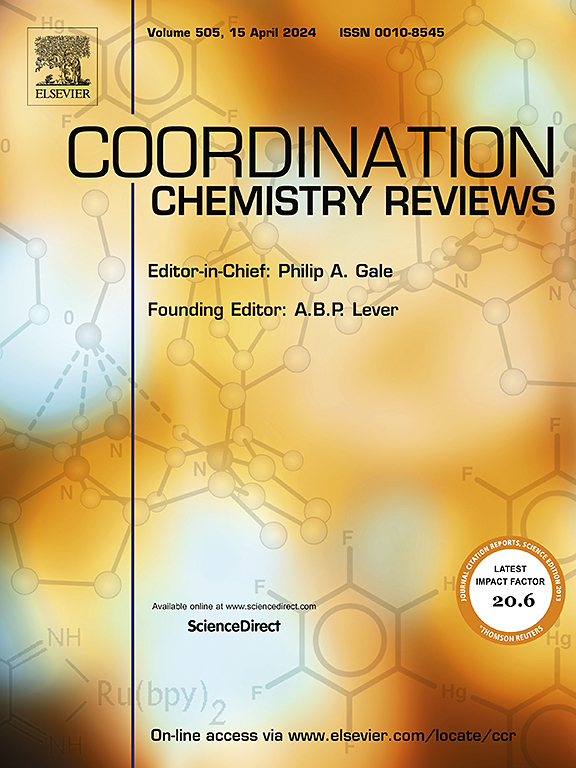Recent progress of advanced Nanozymes for targeted oncotherapy and synergistic immunotherapy
IF 20.3
1区 化学
Q1 CHEMISTRY, INORGANIC & NUCLEAR
引用次数: 0
Abstract
Nanozymes are a type of simulated artificial enzymes that possess both the unique properties of nanomaterials and enzyme functions, making them promising alternatives to natural enzymes in the biomedical field. In recent years, with the cross-fusion of nanomedicine and nanocatalysis, significant efforts have been made to regulate the nanozymes further to realize specific antitumor therapy and simultaneously minimize their side effects. In this review, we introduced the latest advances in the intelligent regulation of nanozymes over the past three years, focusing on their activity and specificity. Through machine learning, bionics and chemical design, the catalytic properties of nanozymes can be reasonably predicted and designed, enabling their application in various scenarios. A brief description was also provided on improving their specificity and biosafety through surface modification, multi-stimulation, and tumorous in-situ synthesis. Furthermore, strategies for augmenting antitumor immunity based on nanozymes were well summarized. Finally, main challenges and prospects were proposed for the further biomedical development of nanozymes, including precise manipulation of catalytic route on demand at the molecular level, the relationship between nanozymes and cellular metabolism, the development of more types of nanozyme activities and the challenges faced in clinical translation.
先进纳米酶在肿瘤靶向治疗和协同免疫治疗中的研究进展
纳米酶是一种模拟的人工酶,它既具有纳米材料的独特性质,又具有酶的功能,使其成为生物医学领域天然酶的有希望的替代品。近年来,随着纳米医学与纳米催化的交叉融合,人们在进一步调节纳米酶以实现特异性抗肿瘤治疗的同时,将其副作用降到最低方面做出了重大努力。本文综述了近三年来纳米酶智能调控的最新进展,重点介绍了纳米酶的活性和特异性。通过机器学习、仿生学和化学设计,可以合理地预测和设计纳米酶的催化性能,使其在各种场景中得到应用。简要介绍了通过表面修饰、多重刺激和肿瘤原位合成等方法提高其特异性和生物安全性的研究进展。此外,还总结了纳米酶增强抗肿瘤免疫的策略。最后,提出了纳米酶在生物医学进一步发展的主要挑战和前景,包括在分子水平上按需精确操纵催化路线、纳米酶与细胞代谢的关系、更多类型纳米酶活性的开发以及在临床转化中面临的挑战。
本文章由计算机程序翻译,如有差异,请以英文原文为准。
求助全文
约1分钟内获得全文
求助全文
来源期刊

Coordination Chemistry Reviews
化学-无机化学与核化学
CiteScore
34.30
自引率
5.30%
发文量
457
审稿时长
54 days
期刊介绍:
Coordination Chemistry Reviews offers rapid publication of review articles on current and significant topics in coordination chemistry, encompassing organometallic, supramolecular, theoretical, and bioinorganic chemistry. It also covers catalysis, materials chemistry, and metal-organic frameworks from a coordination chemistry perspective. Reviews summarize recent developments or discuss specific techniques, welcoming contributions from both established and emerging researchers.
The journal releases special issues on timely subjects, including those featuring contributions from specific regions or conferences. Occasional full-length book articles are also featured. Additionally, special volumes cover annual reviews of main group chemistry, transition metal group chemistry, and organometallic chemistry. These comprehensive reviews are vital resources for those engaged in coordination chemistry, further establishing Coordination Chemistry Reviews as a hub for insightful surveys in inorganic and physical inorganic chemistry.
 求助内容:
求助内容: 应助结果提醒方式:
应助结果提醒方式:


